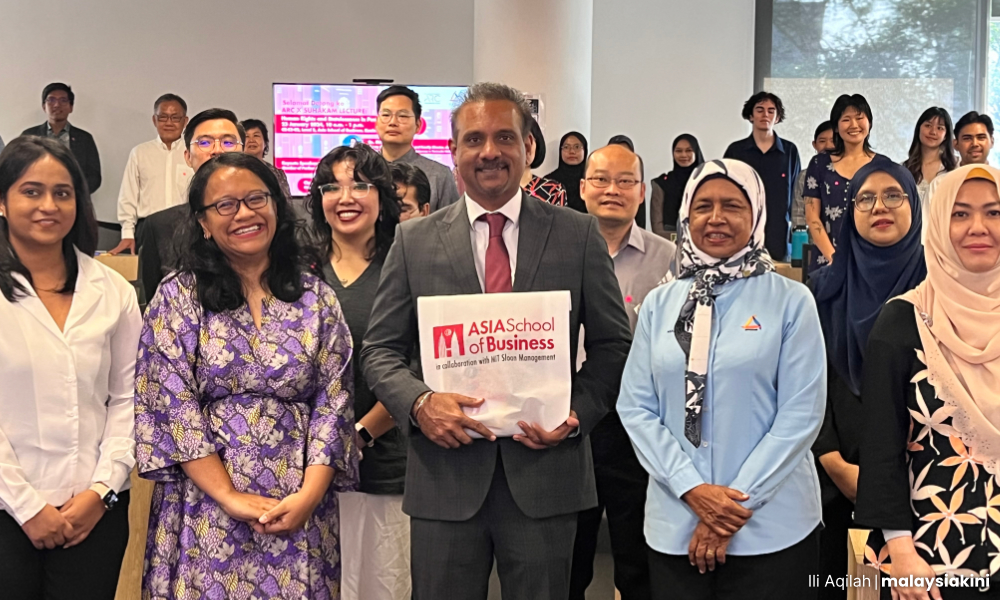The first comprehensive research done on statelessness in Peninsular Malaysia listed more than 50 suggestions to address the matter.
The nine-month-long research commissioned by Suhakam was conducted by Melati Nungsari and Nicole Fong, research managers at the Asia School of Business.
Among the solutions proposed, eight were suggested to the Home Ministry.
This includes pledging to commit to ending childhood statelessness by 2024 under the UNHCR #IBelong campaign, allowing UNHCR access to refugees in detention to verify refugee, asylum, and stateless statuses, issuing temporary legal documents to stateless individuals on citizenship applications, and utilise UNHCR as a source of technical advice and expertise on matters related to statelessness.
The Foreign Ministry was also urged to ratify the International Convention on the Elimination of All Forms of Racial Discrimination (Icerd) and International Covenant on Civil and Political Rights (ICCPR), as well as remove reservations on the 1951 convention.
The UN initiated Icerd in 1965 to deal with global racial intolerance, but in Malaysia, it was perceived as a threat to bumiputera privileges - under Article 153 of the Federal Constitution - and Islam.
The Refugee Convention 1951, also known as the 1951 Convention relating to the status of refugees, is a crucial international legal instrument that outlines the rights and protections of refugees and sets the standard for their treatment.
Article 19 of the ICCPR provides that everyone has the right “to seek, receive and impart information and ideas of all kinds, regardless of frontiers, either orally, in writing or print, in the form of art, or through any other media of his choice”.
Suhakam reiterates that the exercise of the right to freedom of opinion and freedom of expression are indispensable conditions for the full development of a person; and constitutes the foundation stone for every democratic society.

Meanwhile, the research also suggested the National Registration Department ensures all applicants for citizenship understand the process by devoting time to educating applicants on what needs to be done, and on specific forms and documents that need to be produced.
“The departments also need to hire more diverse groups of officers to deal with citizenship issues as statelessness intersects with race and ethnicity very heavily,” it said.
The research also gave suggestions to UNHCR, the welfare department, law enforcement such as immigration and police, the census department as well as the Women, Family and Community Development Ministry.
During a lecture on the research, Melati, who is also an associate professor of economics, said the research provides awareness to the public and also a detailed plan for each stakeholder in moving forward.

“The data were collected between September and December 2021. It combined an intensive desk review of 220 sources and interviews with 89 stateless individuals and stakeholders.
“We reviewed birth marriage and death registrations and ways in which they may not be fulfilled and put the individuals at risk of statelessness.
“The general finding was that the registrations are typically ‘easy’ if everything is ‘normal’ but hiccups such as lack of documentation or late registration can cause huge issues,” she said during the lecture at the Asia School of Business.
Suhakam commissioner Mariati Robert believed that the research would assist more holistically in issues connecting the stateless in Peninsular Malaysia.
“We have urged the government to adopt a holistic approach to handle citizenship issues.
“The research has addressed issues connected to statelessness in the peninsula and I believe that once the arrears of concerns are identified, steps can be taken to handle time in an improved and better way,” she told Malaysiakini.

Impact on fundamental human rights
Former deputy minister in the Prime Minister’s Department for law and institutional reform Ramkarpal Singh, who gave his keynote speech, believed the research had an impact on fundamental human rights.
“The right of citizenship is a fundamental issue and a basic human right, that everyone is entitled to.
“Statelessness has a detrimental impact on children, families, and society at large. Without proper documentation and citizenship, one would be denied or face challenges in gaining access to other rights such as the right to own property, the right to work, and the right to access education.
“I believe the finding will provide an opportunity for all, to be made aware of the importance of promoting sufficient awareness concerning the issues leading to and relating to statelessness,” he said.




No comments:
Post a Comment
Note: Only a member of this blog may post a comment.